- Home
- Terry Goodkind
Phantom: Chainfire Trilogy Part 2 tsot-10 Page 8
Phantom: Chainfire Trilogy Part 2 tsot-10 Read online
Page 8
When the world of life flashed back into her gifted vision, she pulled with all her might and at last drew that breath.
“Now, Cara!”
Without hesitation, Cara heaved the heavy candelabra. The beast easily caught the massive iron candle stand in one clawed hand, lifting it high. Behind it, through the windows, lightning cracked and boomed.
Nicci paused, waiting for a lull in the flashes.
When it came, when the room plunged back into darkness, she cast out—not power, but its antecedent.
That casting bathed the beast in the agonizingly almost: the inductive ignition of power . . . absent the consequence.
She could see that the creature felt the strange sensation of the promise of the profound . . . not quite conjured, not yet delivered. It blinked in confusion, unsure if it really felt something, wanting to act, yet not knowing what it was that it felt or what to act against.
Without the successful launch of any direct attack of Nicci’s power, the beast appeared to decide that she had failed and again defiantly lifted the candelabra high over its head, like a trophy won in battle.
“Now,” Zedd called to Ann and Nathan as he rushed forward, “while it’s distracted.”
They were about to ruin everything. Nicci could do nothing to halt their interference. Cara, never one to be gentle in her duty, did do something. She drove the three of them back like a sheepdog herding strays. They protested as they retreated, demanding she get out of the way.
Nicci watched it all happening from a distant place on the cusp between worlds. She could no longer help Cara. The woman would have to handle it herself. Somewhere in the faraway world of life; Zedd fumed at the Mord-Sith and tried to launch an attack, but Cara used the threat of ramming him with a shoulder to drive him back, throwing him not only off balance, but distracting him from his intentions.
In that other world, the dark world beyond life, what Nicci had deliberately created was a void of effect, cause without consequence, a constructed expectation of a material release of her darker power, which she also deliberately tailed to provide.
Time itself seemed to stand still, waiting for what must be but would not come.
The tension in the air around Nicci was palpable. The green lines around her raced ever faster through the air in an effort to completely reestablish the verification web, to have her life held suspended.
The flaw, like a spider in its web, waited for her.
She knew she had only a fleeting moment before she would be unable to do anything.
This time, her end would at least gain something of value.
Nicci fed the field around the beast yet more of the open gateway to a profound release of power which she purposely withheld.
The stress between what existed and what did not yet exist, and would not happen, was insufferable.
In an instant, that terrible, intolerable void, that vacuum of power that Nicci had created in both worlds, was filled with the deafening release of a bolt of lightning that came crashing in through the window, while its twin, from the world beyond the world of life, ripped through the veil, drawn to the need unfulfilled around the beast—compelled to complete what Nicci had begun but would not finish. This time, there was no safety in escape to another world; both worlds had together unleashed their fury.
Shattered glass rained through the room. The thunderous boom shook the stone walls of the Keep. It seemed as if the sun itself were exploding in through the window.
The lines racing around Nicci came up like a shroud.
Through her gifted vision she saw the completion of the link she had established, saw the lightning find the void around the beast and fulfill the terrible empty obligation she had created.
The explosion of that lightning was beyond anything that she had ever seen before. Creating the precursor in both worlds lent the lightning the power of both worlds, Additive and Subtractive, creative and destructive, intertwined in a single calamitous discharge.
Nicci was frozen by the spell, and could not close her eyes against the blinding flash of light and dark that tangled together, striking both ends of candelabra and blasting down through the beast.
In the violent corona of crackling white light, the beast came apart, driven to dust and vapor by the intensity of the heat and power focused in the void Nicci had created.
Gales of rain and wind roared in through the shattered window. Outside, yet more lightning flickered through the roiling greenish clouds. When the lightning outside lit the room, they could all see that the beast was gone.
For now, anyway, it was gone.
Through the net of green lines, Nicci saw Richard racing across the room toward her.
That room seemed so distant.
She saw the dark world close in around her.
Chapter 8
When her horse whinnied and stamped its hooves, Kahlan slipped her hand farther up the reins, closer to the bit, to hold the nervous animal in place. The horse didn’t like what it smelled any more than Kahlan did. She reached up and gently stroked the underside of the horse’s chin as she waited behind Sisters Ulicia and Cecilia.
Light gusts ruffled the cottonwood leaves overhead, making the glossy leaves shimmer in the midday light. In the shade of those huge cotton-woods, dappled sunlight danced over the grassy hilltop, while overhead a few cottony white clouds dotted the blindingly bright blue sky. When the breeze shifted around and came in from their backs, it brought relief not only from the sweltering heat. Kahlan allowed herself a deeper breath.
She used a finger to wipe sweat and grime from under the metal collar locked around her neck. She wished she could have a bath, or at least jump in a stream or a lake. The summer heat and dusty traveling had conspired to turn her long hair into an itchy, tangled mess. She knew, though, that the Sisters didn’t care how uncomfortable she was and that they wouldn’t be pleased if she were to ask if she could have a chance to wash up, the way they often did. The Sisters didn’t care in the least about Kahlan’s wants, much less her comfort. She was their slave, no more; it mattered not if the collar she wore around her neck chafed and rubbed her skin raw.
As Kahlan waited, her mind wandered to the statue she had given up, the statue she’d had to leave in Lord Richard Rahl’s palace. While she had no memory of her past, she had memorized every line of that figure of a woman with flowing hair and robes. There was something quietly noble about her spirit, about the way the figure stood with her back arched, her hands fisted, and her head thrown back as if in defiance of invisible forces that would subdue her.
Kahlan knew all too well what it felt like to have invisible forces subduing her.
From the quiet hilltop they watched as Sister Armina made her way across the open landscape below. There was no one else in sight. The long grasses looked almost liquid as they waved and bowed in the breeze. Sister Armina finally trotted her bay mare up the hill. She circled her horse around and came to a halt beside the rest of them.
“They’re not there,” she announced.
“How far ahead are they?” Sister Ulicia asked.
Sister Armina lifted an arm to point. “I didn’t go much beyond those hills there. I didn’t want to take a chance on being spotted by any of Jagang’s gifted. As near as I can tell, though, the stragglers and camp followers have only moved on a day or two ago.”
When the breeze at their backs slackened, it allowed the smell to drift up the hill again. Kahlan wrinkled her nose. Sister Ulicia noticed but didn’t comment. The Sisters didn’t seem to be at all bothered by the stench.
Sister Ulicia abruptly turned and stuffed a boot in a stirrup. “Let’s go have a look over the hills beyond,” she said as she swung up into her saddle.
Kahlan mounted up and followed after the other three women as they trotted their horses down the hill. She thought it odd how the Sisters seemed unusually jumpy. They tended to be arrogantly bold in whatever they did, but now they were being cautious.
To the left towered th
e rugged, blue-gray shapes of lofty mountains. The rock slopes and cliffs were so imposing that there were few places where trees could gain a foothold. Some of the peaks were so high that they had snow atop them despite it being summer. Kahlan and the Sisters had followed those mountains south since finding a place to cross over them after leaving the People’s Palace. In those travels, the Sisters had avoided going near people whenever they could.
Kahlan gave her horse’s reins a little more slack. The hills they rode across were rutted with gullies that made it difficult traveling at times. Kahlan knew that there would probably be roads down out of the hills, but the Sisters didn’t generally like to travel on roads and kept off them whenever possible. As they moved through the tall grass among the scattered trees, they stayed in the concealing shelter of the folds of land between hills.
Before Kahlan could see any of what lay ahead, the unmistakable, gagging stench of death grew so terrible that she could hardly breathe. Cresting a hill, she finally saw the city spread out below. They all paused, gazing down at the empty roads, the burned buildings, and the carcasses of what looked to be horses.
“Let’s be quick,” Sister Ulicia said. “We’ll take the main road on the other side for a ways and get close enough to be sure of where they are and exactly the direction they’re headed.”
They spurred their horses into canters as they rode in silence down out of the hills and into the fringes of the city. The place looked to have been built up around a meandering bend in a river and the crossings of several roads that were probably trade routes. The larger of two timber bridges had been burned. As they crossed a narrow second bridge in single file, Kahlan glanced down at the water. Bloated bodies floating facedown had collected in the reeds. Even before she had seen them, the stench of death had been so heavy in the air that she had lost her interest in going for a swim. She just wanted to be away from the place.
As they rode in among the buildings, Kahlan held a scarf over her nose and mouth. It didn’t help much. She thought she might vomit from the fetid smell of rotting flesh. It seemed peculiar that it was so strong.
She soon discovered why.
They rode past side streets where corpses were piled in the hundreds. A few dogs and mules lay dead among them, the legs of the mules standing out straight and stiff. From the way the bodies were jammed into the narrow side streets, Kahlan thought that the people must have been herded into confined spaces from which escape was impossible and then slaughtered. Most of the dead, animal and human, were ripped open with ghastly wounds. Some of the dead had broken lances jutting from them, while others had been killed by arrows. Most, though, appeared to have been hacked to death. Kahlan noticed one other thing about them: they were all older people.
Many of the buildings in one section of the city were burned down. Only in a few places did wisps of smoke still curl up from some of the thicker piles of rubble. The charred wooden beams looked like the scorched skeletons of monsters. It appeared to be a day or two since the fires had burned themselves out.
Stepping their horses along the narrow cobbled street between two-story buildings looming up to either side of the road, they peered about in silent appraisal of the destruction. The buildings still standing had all been looted. Doors were broken in, or lay in the street nearby. Kahlan didn’t see a single window that hadn’t been broken. Curtains lay draped over a few of the tiny balconies overlooking the street. A few of those balconies held a body. Besides the fragments of wood from doorframes and the broken glass, the streets were littered with trivial items: random articles of clothing; a bloody boot; pieces of broken furniture; broken weapons; broken pieces of wagons. Kahlan saw a doll with yellow yarn for hair lying facedown, its back flattened by a hoofprint. All of the items had the look of having been picked over by a number of hands and, after being judged to be worthless, discarded.
Daring to look into the dark buildings they passed, Kahlan saw the real horrors. They were not merely the bodies of murdered townspeople. There were the bodies of people who looked to have been murdered for sport, or out of a sheer brutality. Unlike the bodies heaped in the side streets, these people were not older. They looked like they might have been people trying to protect their shops or homes. Through one broken shopwindow she saw that a man, wearing the kind of apron used by cobblers, had been nailed to a wall by his wrists. From the center of his chest protruded dozens of arrows, making him look like a grotesque pincushion. His mouth and each eye had been penetrated by an arrow. The man had not only been used for target practice, but as an object of monstrous humor.
In other dark buildings, Kahlan saw women who had all too obviously been raped. A shirtsleeve still on one arm was all that covered one woman on a floor. Her breasts had been mutilated. In another place, a girl, looking not to yet have grown into womanhood, lay sprawled on a table, her dress pushed up past her waist. Her throat had been cut through to her spine. Her legs lay splayed out, a broomstick left shoved in her as a final act of disdain. Kahlan felt numb as she saw one horrifying sight after another, each of such lurid cruelty that she could not imagine the kind of men who could have committed such acts.
By the manner of dress of many of the dead, the men appeared to be simple working people. They were not soldiers. For the crime of trying to protect their homes and businesses they had been butchered.
As Kahlan passed one small building she saw, in a back corner against a brick wall, a pile of small children—mostly babies. It was reminiscent of the way autumn leaves collected in a corner, except these all had once been living people with a life ahead of them. The gore on the brick wall betrayed where their heads had been bashed in. It was apparent that the killers had wanted to dispatch them as efficiently as possible. On the silent ride through the city, Kahlan saw several more places where the very young had been cast into piles after being murdered in a fashion that could only be described as entertainment for the most monstrous of men.
Although there were not very many women among the dead, Kahlan didn’t see one who was fully clothed. The ones she did see were either older or pretty young. Their treatment had been bestial beyond imagining and their deaths slow.
Kahlan swallowed back the lump in her throat as she wiped her eyes.
She wanted to scream. The three Sisters didn’t seem to be particularly moved by the carnage in the city. They watched down the side streets and gazed at the surrounding hills, apparently concerned about any sign of a threat.
Kahlan had never been so happy to leave a place as she was when they finally made their way out of the city and took a road leading southeast.
The road turned out not to be the escape from the outrages of the city that she thought it would be. Along the way the ditches were here and there filled with the bodies of unarmed young men and older boys, probably executed for trying to escape, resisting the idea of slavery, as lessons to the others, or simply for the sport of murder.
Kahlan felt dizzy and hot. She feared she might be sick. The way she swayed in her saddle only made her nausea worse. The stench of death and charred flesh followed them in the bright sunshine as they rode among the hills on the far side of the city. The smell was so pervasive that it felt as if it had saturated her clothes and was even coming out in her sweat.
She doubted that she would ever again sleep without nightmares.
Kahlan didn’t know what the name of the city had been, but it was no more. There hadn’t been a single person left alive. Anything of any value had either been destroyed or looted. From the number of corpses, as vast as they had been, she knew that many of the city’s inhabitants, mostly the women, the ones of the right age, anyway, had been taken as slaves. After seeing what had happened to the women left dead in the city, Kahlan could vividly imagine what would happen to the women taken away.
The broadening plane and the hills to either side for as far as Kahlan could see had been trampled by what had to be well beyond mere hundreds of thousands of men. The grasses had not simply been flattened by c
ountless boots, hooves, and wagon wheels, but had been ground to dust under the weight of unthinkable numbers. The sight put into perspective the magnitude of the masses that had passed through the city, and in a way was more horrifying than the ghastly scenes of death. A force of men this huge bordered on a force of nature itself, like some terrible storm that cut a swath across the face of the land, mercilessly destroying everything in its path.
Later in the day, as they approached the crest of a hill, the Sisters carefully maneuvered into a position that put the sun low at their backs so that anyone ahead would have to stare into the sun to see them. Sister Ulicia slowed and stood in her stirrups, stretching for a careful look, then signaled the rest of them to dismount. They all tied their horses to the carcass of a scraggly old pine split in two by lightning. Sister Ulicia told Kahlan to stay close behind them.
At the edge of the hill, as they crouched silently in the weedy grass, they finally caught their first glimpse of what had come through the fallen city. In the dim distance, spread across the hazy horizon, was what at first appeared to be a muddy, brown sea, but was actually the dark taint of an army of such numbers that it was beyond counting. Carried on the wind, in the quiet, late-day air, Kahlan could just make out the distant, bloodcurdling sounds of howls, women’s screams, and men’s raucous laughter coming from the massive mob.
The sheer weight of such multitudes would have crushed the defenses of any city. Any armed opposition would hardly have been noticed by an army as vast as this one. Men gathered in such numbers could not be halted by anything.
But as much as this army seemed to be a mass, a mob, a thing, she knew that it was wrong to think of it in those terms; this was a group of individuals. These men had not been born monsters. Each had once been a helpless babe cradled in a mother’s arms. Each had once been a child with fears, hopes, and dreams. While an occasional aberrant individual could, because of a sick mind, grow up to be a remorseless killer, this many individuals had not. Each was a killer by conviction to a cause, a killer by choice, all united under a banner of perverse beliefs that gave sanction to their savagery.

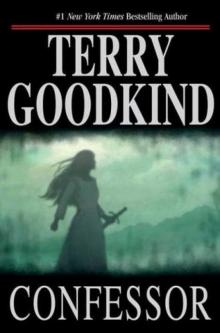 Confessor
Confessor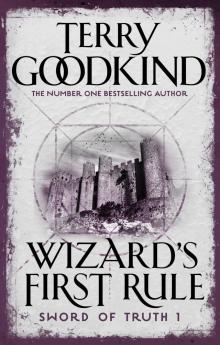 Wizard's First Rule
Wizard's First Rule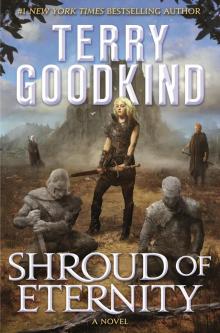 Shroud of Eternity
Shroud of Eternity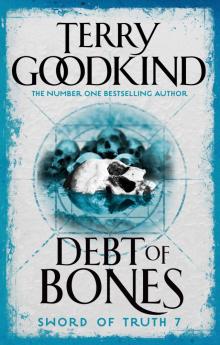 Debt of Bones
Debt of Bones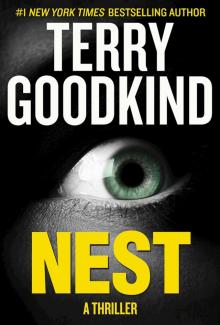 Nest
Nest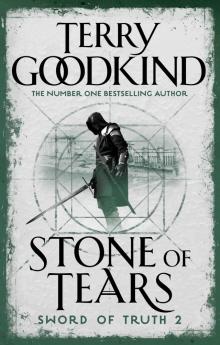 Stone of Tears
Stone of Tears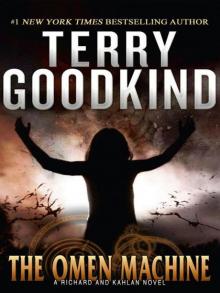 The Omen Machine
The Omen Machine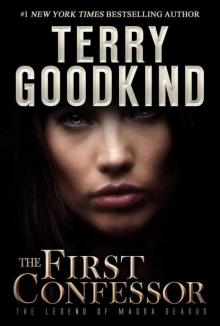 The First Confessor
The First Confessor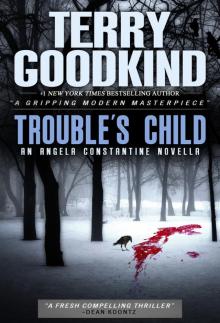 Trouble's Child
Trouble's Child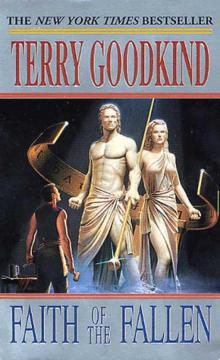 Faith of the Fallen
Faith of the Fallen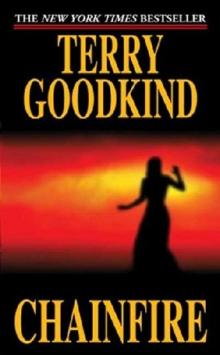 Chainfire
Chainfire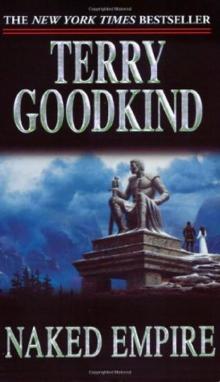 Naked Empire
Naked Empire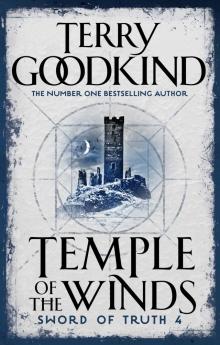 Temple of the Winds
Temple of the Winds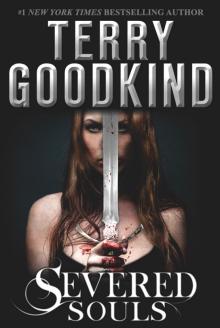 Severed Souls
Severed Souls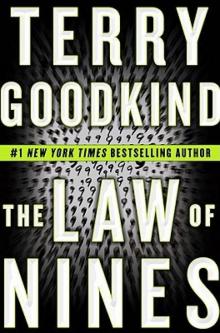 The Law of Nines
The Law of Nines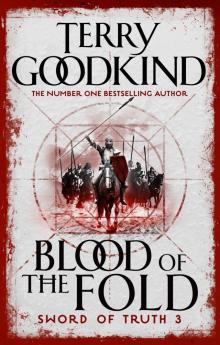 Blood of the Fold
Blood of the Fold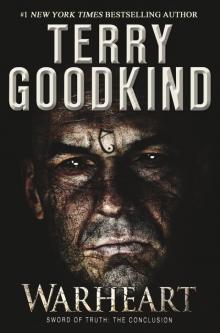 Warheart: Sword of Truth: The Conclusion
Warheart: Sword of Truth: The Conclusion The Sky People
The Sky People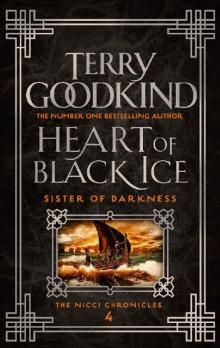 Heart of Black Ice (Sister of Darkness: The Nicci Chronicles Book 4)
Heart of Black Ice (Sister of Darkness: The Nicci Chronicles Book 4)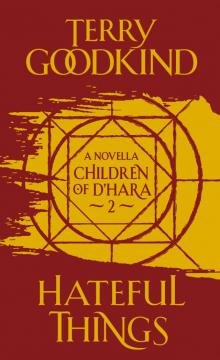 Hateful Things
Hateful Things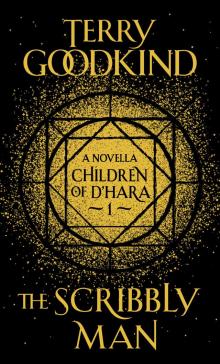 The Scribbly Man
The Scribbly Man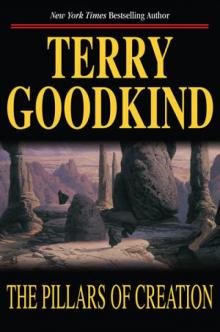 The Pillars of Creation
The Pillars of Creation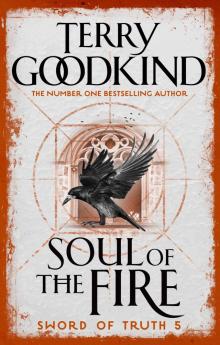 Soul of the Fire
Soul of the Fire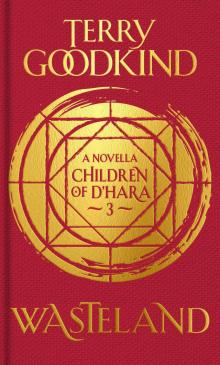 Wasteland
Wasteland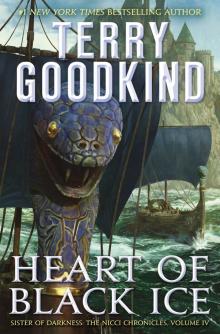 Heart of Black Ice
Heart of Black Ice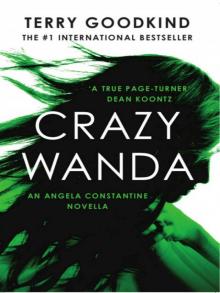 Crazy Wanda
Crazy Wanda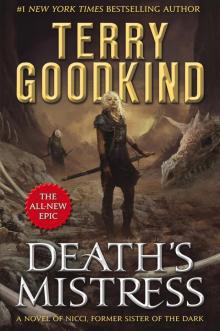 Death's Mistress
Death's Mistress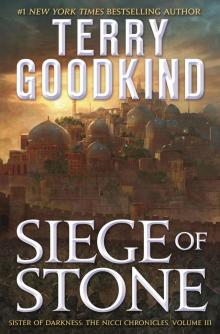 Siege of Stone
Siege of Stone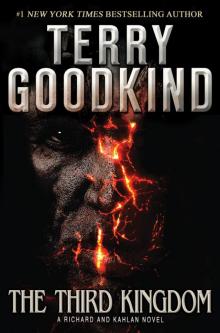 The Third Kingdom
The Third Kingdom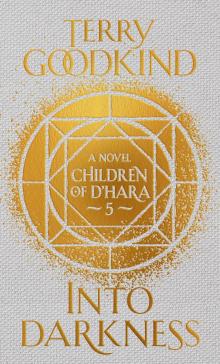 Into Darkness
Into Darkness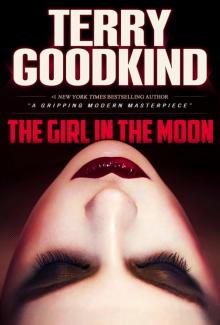 The Girl in the Moon
The Girl in the Moon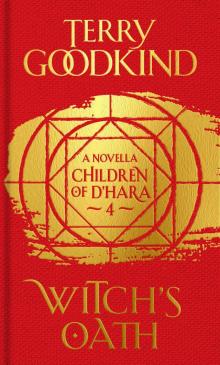 Witch's Oath
Witch's Oath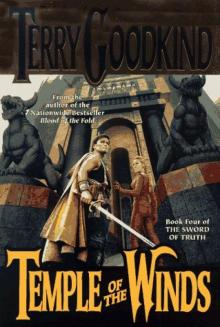 Temple of the Winds tsot-4
Temple of the Winds tsot-4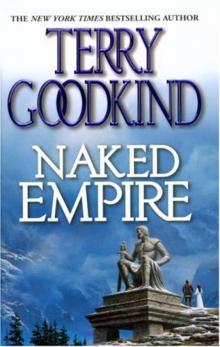 Naked Empire tsot-8
Naked Empire tsot-8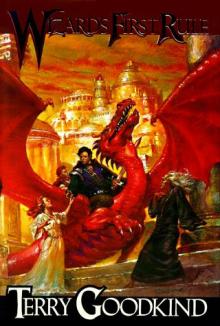 Wizard's First Rule tsot-1
Wizard's First Rule tsot-1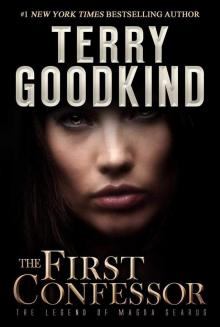 The First Confessor (The Legend of Magda Searus)
The First Confessor (The Legend of Magda Searus)![[Sword of Truth 9] - Chainfire Read online](http://i1.bookreadfree.com/i1/03/27/sword_of_truth_9_-_chainfire_preview.jpg) [Sword of Truth 9] - Chainfire
[Sword of Truth 9] - Chainfire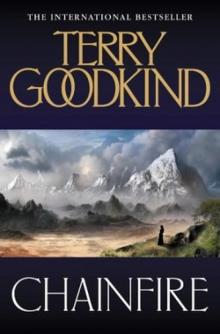 Chainfire: Chainfire Trilogy Part 1 tsot-9
Chainfire: Chainfire Trilogy Part 1 tsot-9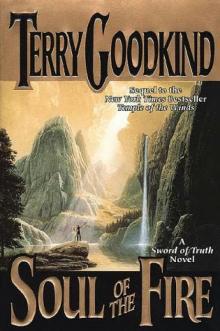 Soul of the Fire tsot-5
Soul of the Fire tsot-5 Pillars of Creation
Pillars of Creation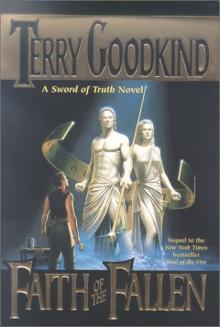 Faith of the Fallen tsot-6
Faith of the Fallen tsot-6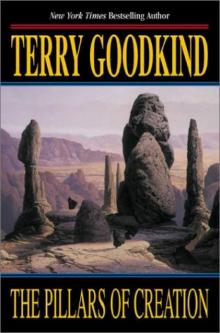 The Pillars of Creation tsot-7
The Pillars of Creation tsot-7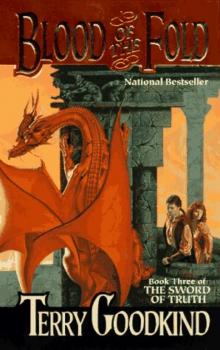 Blood of the Fold tsot-3
Blood of the Fold tsot-3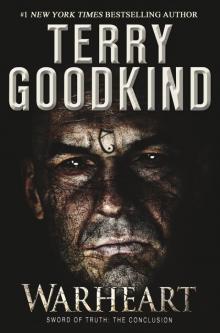 Warheart
Warheart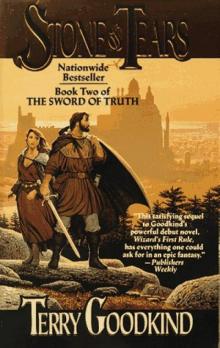 Stone of Tears tsot-2
Stone of Tears tsot-2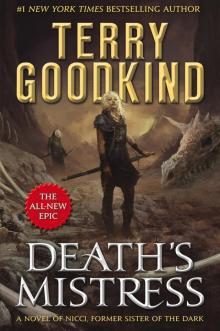 Death's Mistress--Sister of Darkness
Death's Mistress--Sister of Darkness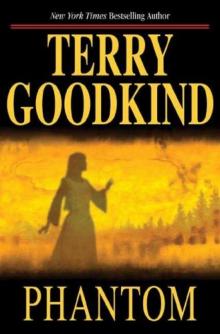 Phantom: Chainfire Trilogy Part 2 tsot-10
Phantom: Chainfire Trilogy Part 2 tsot-10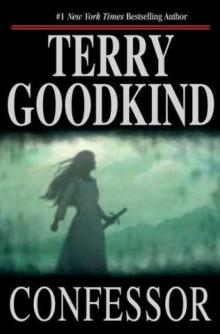 Confessor: Chainfire Trilogy Part 3 tsot-11
Confessor: Chainfire Trilogy Part 3 tsot-11